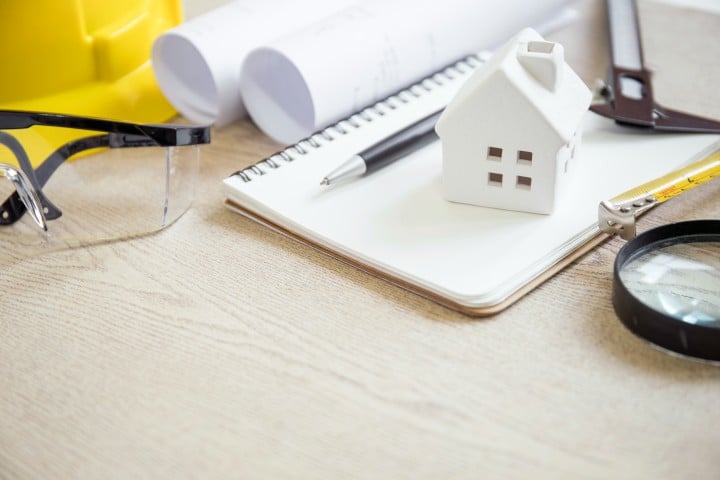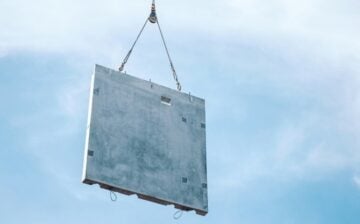Buying a home is one of the most important financial decisions most people will make during their lifetime. Given the magnitude of this investment, it is crucial to ensure that every aspect of the prospective home is in good condition before finalizing the deal. This is where home inspections come in, serving as a critical tool in the real estate buying process. From the foundation to the roof, a thorough home inspection can spell the difference between securing a dream home and walking into a costly nightmare.
Home Inspections’ Significance in Real Estate Transactions
Home inspections are comprehensive evaluations of the physical structure and mechanical systems of a property. An inspector examines the house to check for any signs of structural damage or items that may need repair or replacement. According to industry reports, approximately 88% of homebuyers hire an inspector when purchasing a new home. This high percentage underscores the crucial role that inspections play in real estate transactions, providing peace of mind and protecting clients from unforeseen expenses.
What Does a Home Inspection Cover?
A standard home inspection report includes checks on the home’s heating and air conditioning systems (season-dependent), plumbing, electrical systems, roof, attic (if there’s any), insulation, walls, ceilings, floors, windows, doors, foundation, basement, and overall structure. The duration can vary depending on the size, age, and condition of the property, but generally, a thorough inspection takes about two to four hours.
Here are several key areas where home inspections play an indispensable role:
1. Identifying Safety Issues
A home inspector looks for safety issues such as an outdated electrical system that could pose a fire hazard, or high levels of radon gas seeping through the foundation. These types of problems can be deal-breakers, as they often require extensive repairs that can significantly inflate the cost of what was once considered an affordable home.
2. Revealing Illegal Additions or Installations
Homes may have additions or renovations that were completed without proper permits. A home inspection can reveal such modifications, informing potential buyers of issues that might affect the home’s insurance, taxes, usability, and overall value.
3. Estimating Future Costs
Major home systems like plumbing, HVAC, and water heaters may all have their installation ages approximately determined by an inspector. They can diagnose the current condition and project the lifespan of these systems. This information is vital for a buyer to budget for replacements that may need to be done in the future.
4. Protection
By identifying potential problems, an inspection helps the buyer negotiate with the seller to handle repairs or adjust the price accordingly. Without an inspection, you might purchase a home unaware of the costly issues that can surface later, posing a significant financial burden.
5. Ensuring High Standards of Living
Finally, a home inspection ensures that your new home meets your standards for safety, quality, and comfort. It gives a detailed snapshot of the house at the time of the inspection, allowing you to make an informed decision.
Home Inspections’ Significance in Real Estate Transactions
The influence of a thorough home inspection on real estate transactions cannot be overstated. Not only do they help in accurately pricing the property, but they also safeguard the buyer’s investment. Inspections provide negotiation leverage in real estate deals where issues are identified, allowing for price adjustments or seller concessions.
Moreover, real estate agents encourage buyers to undertake home inspections to ensure transparent deals and buyer satisfaction, which helps in maintaining the reputation of the agents and the integrity of the buying process.
Avoiding Unpleasant Surprises
One of the significant benefits of conducting a home inspection is avoiding the unexpected. Discovering that the home needs a new roof or has a deteriorating foundation after purchase can be financially devastating. Home inspections can spot these issues ahead of time, which can lead to further negotiations or decision-making that could save the buyer significant amounts of money.
Enhancing Buyer Confidence
Home inspections also enhance buyer confidence by reducing the uncertainties associated with purchasing a home. Knowing the true condition of the home can decrease buyer’s remorse—a common feeling among homebuyers after a hasty purchase without proper checks.
The importance of home inspections in the real estate industry cannot be emphasized enough. They are essential for understanding a property’s condition and ensuring that buyers are fully aware of what they are about to purchase. From foundation to roof, every element of the home is scrutinized to provide a comprehensive overview of its condition and to ensure that buyers make an informed, confident, and financially prudent decision.
In conclusion, whether you are a first-time homebuyer or a seasoned investor, ensuring a home inspection is completed before purchase can protect you from unexpected and often costly repairs, while also providing peace of mind in one of life’s biggest investments.
We hope you found this blog post on From Foundation to Roof: Why Home Inspections Are Key in Real Estate useful. Be sure to check out The Future of Home Inspection Industry: What to Know, for more great tips!

Have Experience in the Moving Industry? Want an Additional Income Stream? Work With All Around Moving!
If you are interested in applying your skills in the moving industry, check out our program to earn extra income. Join our team, we can help you make money. Click here to learn more.





